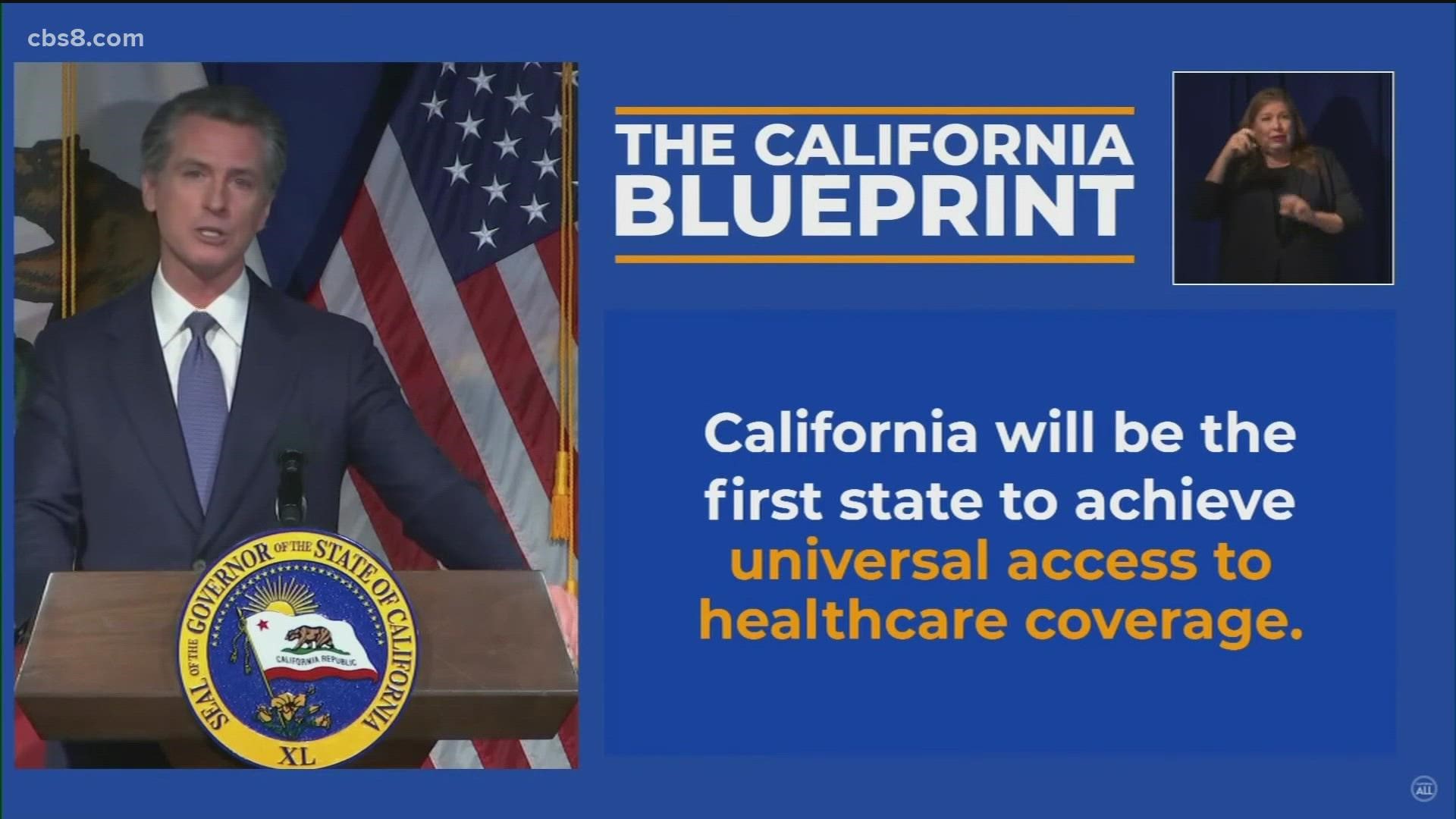SAN DIEGO — Universal health coverage is among the most sweeping changes proposed by Governor Gavin Newsom in his newly-unveiled budget. Newsom's proposal calls for expanding eligibility to Medi-Cal for all low-income Californians regardless of age or immigration status.
Currently, undocumented residents are the largest single group of Californians who are left behind when it comes to health care access, according to the UC Berkeley Labor Center.
"California is poised to be, if this proposal is supported, the first state in the country to achieve universal access to health coverage," Governor Newsom said Monday.
Under this plan, Medi-Cal coverage would be extended to an additional 700,000 Californians, provided they meet the income criteria: for a family of four, that means making less than $36,570.
"This is probably one of the biggest, most important announcements not just for the Health and Human Services budget but I would say the budget at large," said Dr. Mark Ghaly, California's Health and Human Services Secretary.
While Newsom did not outline how this expanded health coverage would be paid for, he estimated the cost at nearly $614 million for the upcoming fiscal year and $2.2 billion annually after that. Universal access would be fully implemented by January 2024.
Already, Medi-Cal is available to low-income Californians under age 26 and, beginning May 1, to those over age 50, regardless of immigration status.
"This is for the good of all of us," said Enrique Morones, founder and executive director of Gente Unida, a nonprofit which advocates for immigrants' rights.
He pointed out that the Californians this proposal would cover are often the ones most vulnerable, especially during the pandemic.
"These are the front-line workers, the ones in hospitals, working in the fields, driving the buses," Morones added. "So it is important that we all have some sort of health care."
Morones said that providing full coverage, including preventive care, will be more cost-effective in the long run.
"You don't want to have a sick workforce, you don't want to have people not able to show up to work, or coming into the hospital when they are really ill," he told News 8. "That's when it becomes very costly."
The state legislature has until June 15 to pass the new budget, which the governor must sign into law by June 30.
WATCH RELATED: Gov. Gavin Newsom reveals his spending plan for the 2022-23 fiscal year state budget

